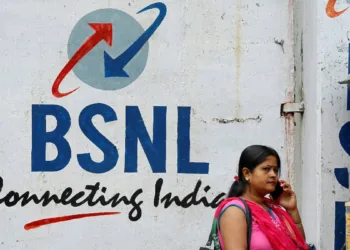In a bold diplomatic move that’s making national headlines, Aam Aadmi Party Rajya Sabha MP and Lovely Professional University (LPU) Chancellor Dr. Ashok Kumar Mittal has issued a stern ultimatum to the United States. If the 50% tariff increase imposed by the U.S. is not revoked by August 27, all American soft drink and beverage companies, including Coca-Cola and PepsiCo, will be banned from LPU’s campus, which is home to more than 40,000 students.
Table of Contents
AAP MP Key Details of the Boycott Announcement
| Aspect | Details |
|---|---|
| Deadline | August 27, 2025 |
| Affected Companies | Coca-Cola, PepsiCo, and all US beverage brands |
| Target | 50% US tariff on Indian goods |
| Impact Zone | LPU campus with 40,000+ students |
| Announcing Authority | Dr. Ashok Kumar Mittal (AAP Rajya Sabha MP) |
| University Position | Founder-Chancellor of LPU |
The Economic Standoff Behind the Boycott
Dr. Mittal has issued a strong warning to the United States against what he termed as “unfair” economic pressure on India and declared that the Lovely Professional university fraternity would begin boycotting American soft drinks and other products from August 27 if Washington does not roll back its recently imposed 50% tariff on Indian exports.
This dramatic response highlights the growing tension between India and the US over trade policies that directly impact Indian businesses and exporters.

“India’s Dignity Non-Negotiable”
The statement emphasizes that “India’s dignity non-negotiable,” positioning this boycott as a matter of national pride rather than mere economic retaliation. Dr. Mittal’s stance reflects a broader sentiment among Indian leaders who view such tariffs as discriminatory trade practices.
The AAP MP’s declaration comes at a crucial time when India-US trade relations are under scrutiny, making this university-level boycott a symbolic but significant gesture of resistance.
LPU: A Strategic Choice for Maximum Impact
Lovely Professional University is one of India’s largest private universities, making it an ideal platform for such a boycott announcement. With over 40,000 students from diverse backgrounds, the ban would send a strong message to American companies about the potential consequences of unfavorable trade policies.
The university’s massive student population ensures that this boycott would have both symbolic value and practical economic impact on US beverage companies’ revenue streams in India.
Political Implications and Wider Context
This move by the AAP MP demonstrates how regional educational institutions are becoming platforms for expressing national economic grievances. The boycott call aligns with growing “Make in India” sentiment and encourages domestic alternatives to foreign products.
Dr. Mittal’s dual role as both a parliamentarian and university chancellor provides him unique leverage to translate political statements into concrete institutional actions.

Potential Ripple Effects
Educational Sector Impact
If successful, this boycott could inspire similar actions across other educational institutions nationwide, creating a coordinated response to US trade policies.
Corporate Consequences
American beverage companies might face pressure to lobby their government for tariff policy changes to protect their lucrative Indian market positions.
Diplomatic Dynamics
The boycott adds another layer of complexity to India-US trade negotiations, showing how grassroots institutional actions can influence international relations.
For more updates on India-US trade relations and educational policy news, check our comprehensive political coverage where we track major policy developments.
Timeline: What Happens Next?
With the August 27 deadline approaching, all eyes are on Washington’s response to this grassroots pressure. The coming days will reveal whether this university-level boycott can influence international trade policy decisions.
The business community is closely watching this development, as it could set precedents for how educational institutions respond to unfavorable international trade policies.
Beyond Soft Drinks: A Larger Message
This boycott represents more than just campus beverage choices—it symbolizes India’s growing confidence in using economic leverage to address trade grievances. Dr. Mittal’s approach demonstrates how institutional leaders can mobilize their platforms for national economic interests.
Stay updated with the latest developments in India-US trade relations and political news at our current affairs section for breaking updates.
Follow our comprehensive political and educational news coverage for the latest updates on trade policies, institutional responses, and India-US diplomatic developments.
Frequently Asked Questions
Q: Will this boycott actually impact US companies significantly?
A: While LPU’s 40,000+ student population represents substantial purchasing power, the real impact lies in potential replication across other institutions. If similar boycotts spread nationwide, US beverage companies could face meaningful revenue losses in one of their key growth markets, potentially pressuring policy changes.
Q: What authority does Dr. Mittal have to implement this ban as an MP?
A: Dr. Ashok Kumar Mittal holds dual authority—he’s both an AAP Rajya Sabha MP and the Founder-Chancellor of Lovely Professional University. His chancellor position gives him direct administrative control over campus policies, while his MP status amplifies the political significance of his announcement.








